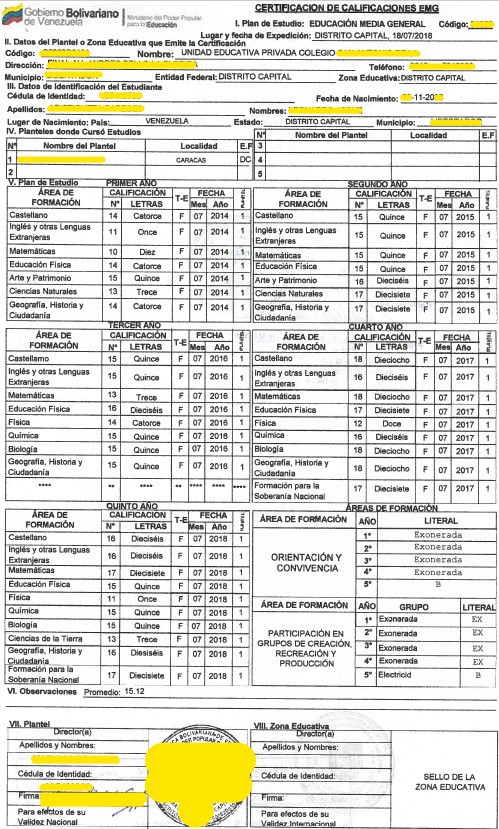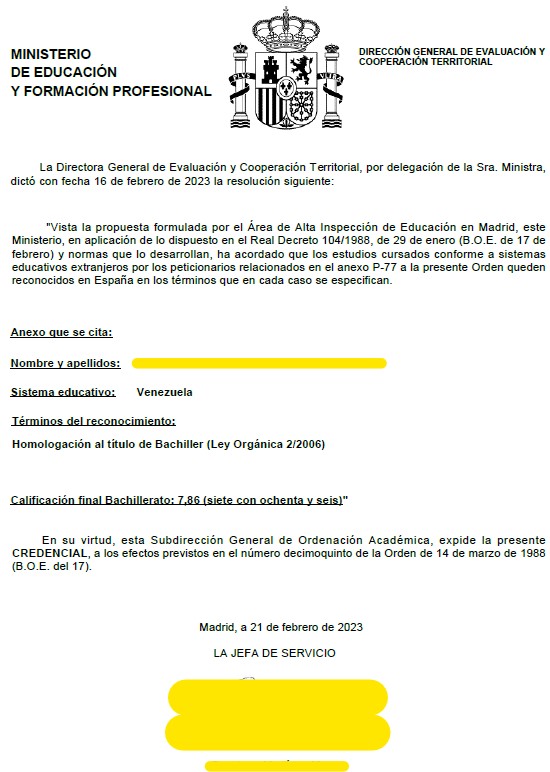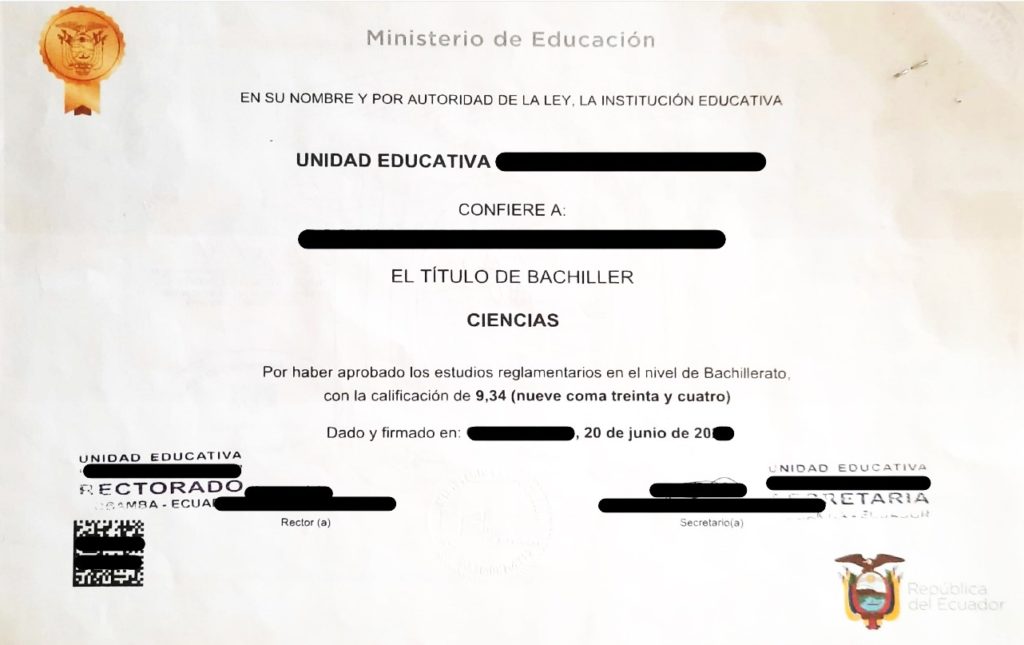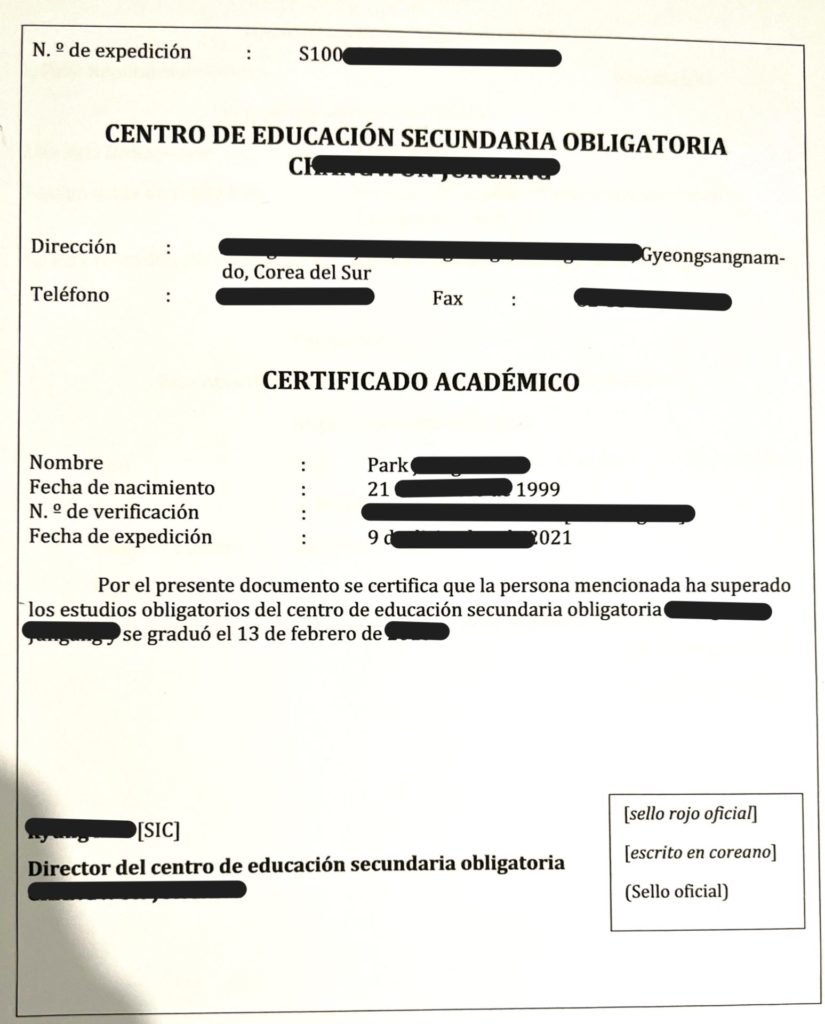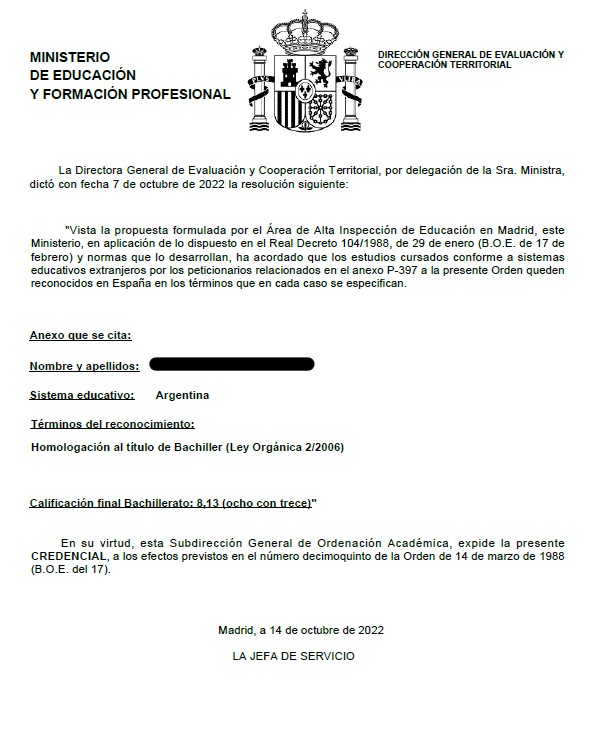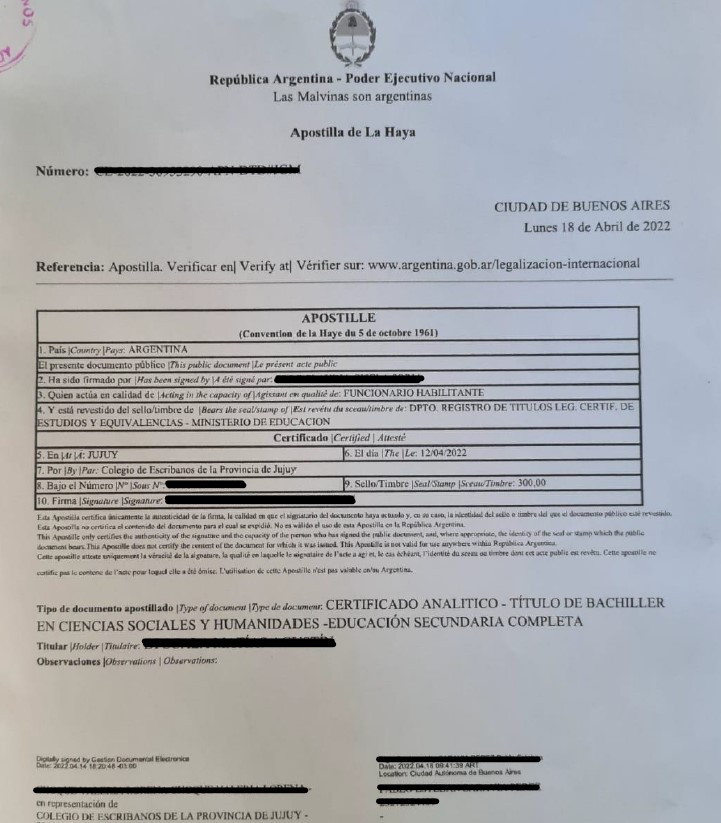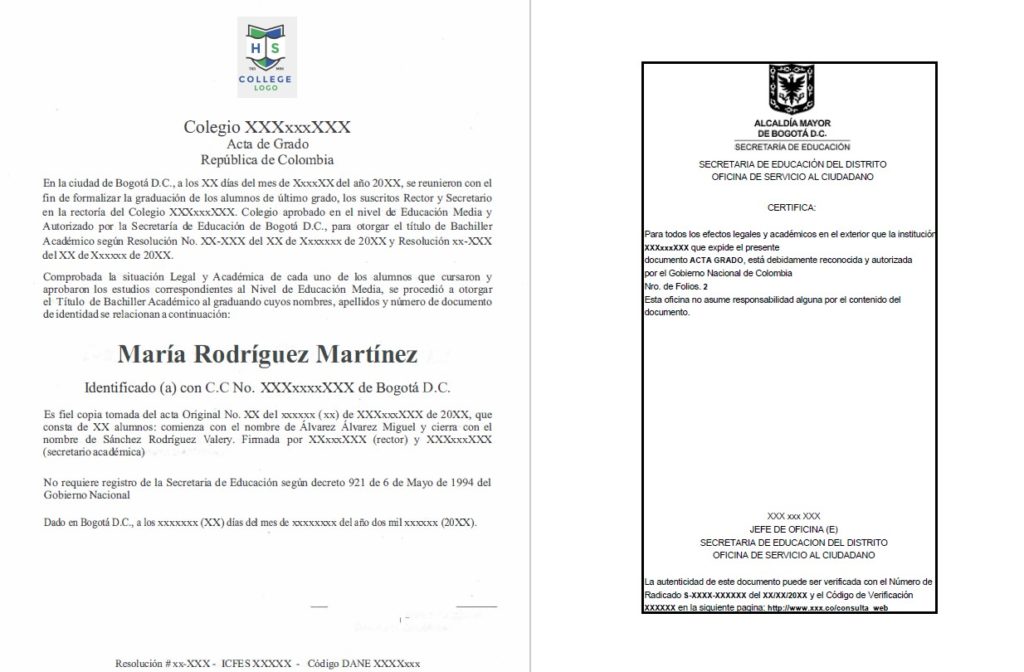Hello, Vivers! If you want to study in Spain and you have a Secondary or Baccalaureate degree in your country, this article is of interest to you. We have been helping our students access Spanish universities for more than 25 years. Every year, thousands of students from all over the world come to our country with the aim of Access to college or a Higher education training cycle. To do this, the vast majority of them will need to homologate the Bachelor's degree in Spain, so it is essential to know the requirements and steps to be able to carry out this procedure. In this article we tell you how to homologate your studies to the Spanish Baccalaureate: who can present it, what documentation you need, what legalization and translation is, where you should present it and how long it will take to receive the approved Baccalaureate degree.
Who can submit the application for homologation to the Spanish Baccalaureate
Any person or their representative whose studies in their country are considered equivalent to the Spanish Baccalaureate can request the homologation of their qualification. To find out the equivalence of your qualification with the Spanish educational system, you can consult this websites. In this link you can review the equivalence of your qualification to the different educational levels in Spain. This way you will be able to know what level your studies correspond to. In this article we are going to focus on those students who can homologate their qualification to the Spanish Baccalaureate, but if you have questions about any of the other levels of homologation you can leave us a comment below.
Documentation necessary to approve the Bachelor's degree in Spain
The Secondary or Baccalaureate degree of each country is different. To homologate your studies to the Spanish Baccalaureate, the Spanish Ministry of Education requires that you present the following documents:
- Document proving the applicant's identity: passport, NIE or DNI. If the request is made by a representative, a signed authorization for representation must also be attached.
- Official Bachelor's degree or diploma.
- Certification of grades accrediting the last three years of Bachelor's degree or equivalent qualification.
- Application model.
- Flyer for conditional registration in educational centers.
- payment of the rate 079: currently, 49,76 euros. If you are outside of Spain, you have the option of making a international transfer for the payment of this fee.
If you go in person to apply, they will give you the application form and the flyer there.
Legalization and translation of documents
If your educational system does NOT belong to the EU or Switzerland, it is necessary that the documents you present be legalized or apostilled for them to have legal validity. This procedure of sealing documents with the Hague Apostille is normally carried out at the Ministry of Foreign Affairs of your country of origin.
Furthermore, if your educational system is not Spanish-speaking, the documents you present to validate the Bachelor's degree in Spain must be accompanied by an official translation into Spanish. This official translation can be done through a sworn translator authorized and registered in Spain, or through the diplomatic or consular representation in your country of origin, or at the Embassy or Consulate of your country in Spain.
Where to submit the application to homologate the Bachelor's degree in Spain
You can submit this request electronically or in person.
If you want to do it online, by yourself or through a representative, you can do it at the Electronic Headquarters of the Ministry of Education. In the application you will fill out the form, you will be able to include all the necessary documentation, and the registration flyer will be automatically generated, necessary to be able to take the PCE UNEDasiss Selectivity. Don't you know what UNEDasiss PCE are? They are the university entrance exams that international students must take if they want to enter a university degree. Look here more info.
We show you what the online application looks like:
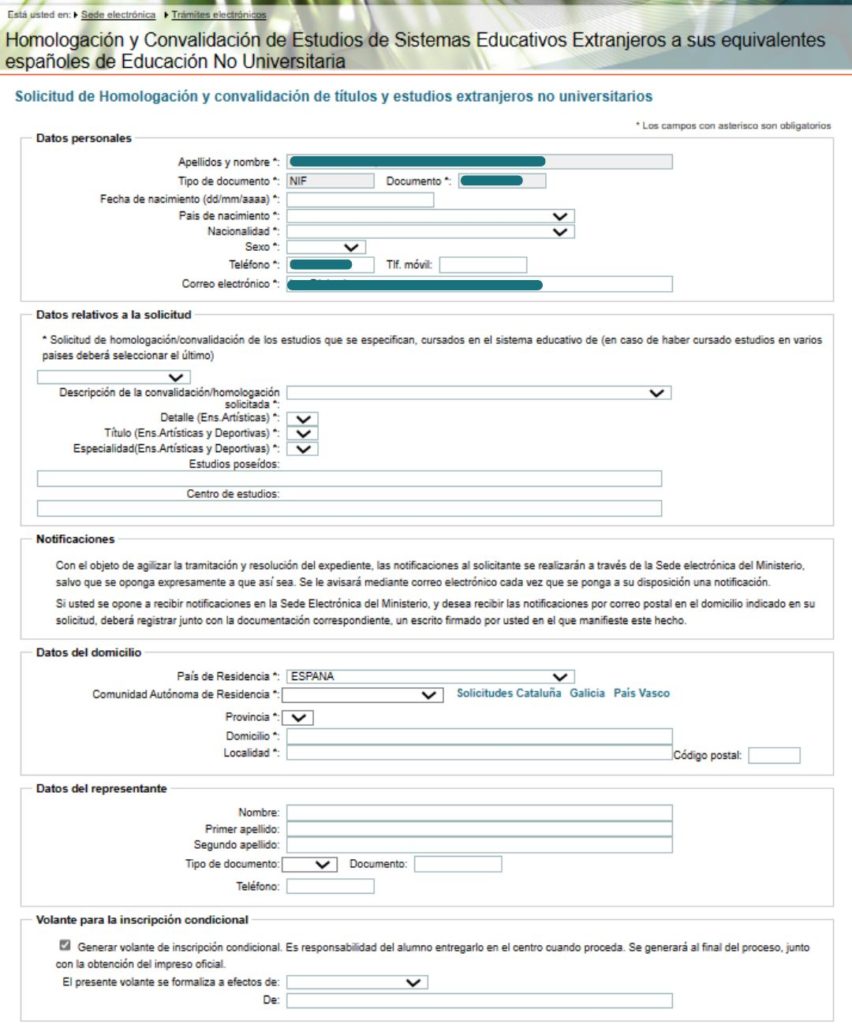
If you prefer to do the process of homologating the Bachelor's degree in Spain in person, you can do it:
- At the General Registry of the Ministry in Madrid: Calle Los Madrazo, 17. You can make an appointment here, although you can also go without an appointment.
- In the Information and Registration Offices of the Government Delegations or Subdelegations of the Autonomous Communities. You can make an appointment here. In Madrid, the Government Delegation is on the street García de Paredes, 65.
- In the General Registries of the diplomatic representations of Spain abroad, that is, in the Consulates or Embassies of Spain in your country of origin.
How long does it take to homologate the Bachelor's degree in Spain?
The deadline for the resolution of these files is 3 months, counting from the time you have created the complete application, with all the necessary documents, and have paid the fee.
Remember that, if you want to prepare to access a Spanish university, it is NOT necessary to have received the approved Baccalaureate to be able to take the UNEDasiss PCE. You can request accreditation and register for the UNED Selectivity tests with the flyer that is generated when making the application.
How can we help you
We hope that this article has been helpful to you in knowing how to homologate the Bachelor's degree in Spain. Remember that at CE Luis Vives we help you on your great adventure if you want to study in Spain:
- We offer academic and professional guidance.
- If you want to study at university in Spain, we have the best preparation course for the PCE UNEDasiss Specific Competencies Tests. You can study online o in-person or.
- All updated teaching material, and an exclusive Virtual Campus with the best resources to prepare your university entrance tests.
- Luis Vives is the Managing Entity of the UNED, so we assist you throughout the registration process in the PCE UNEDasiss.
- If you need to receive a long-term study visa, you can take our course and obtain a study certificate with which to apply for the visa.
- Si necesitas ayuda para realizar tu homologación al Bachillerato español, Luis Vives colabora con la Agencia de estudios Vive Muy Mola, quienes con su equipo jurídico acompañan en todo el proceso ante el Ministerio de Educación. Puedes contactar con ellos a través de su cuenta de Instagram or in Web page, te ayudarán con todos los trámites necesarios para que tu aventura educativa internacional sea todo un éxito.
And if you've come this far and still have questions, leave us a comment below. Until next time!





